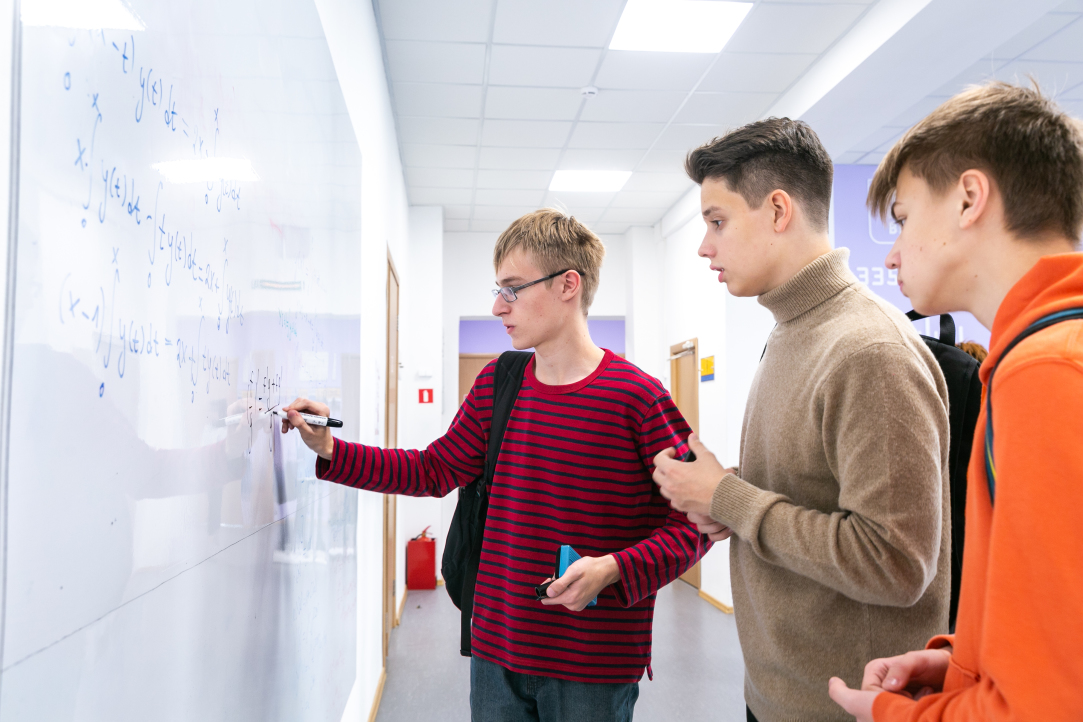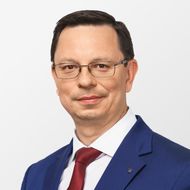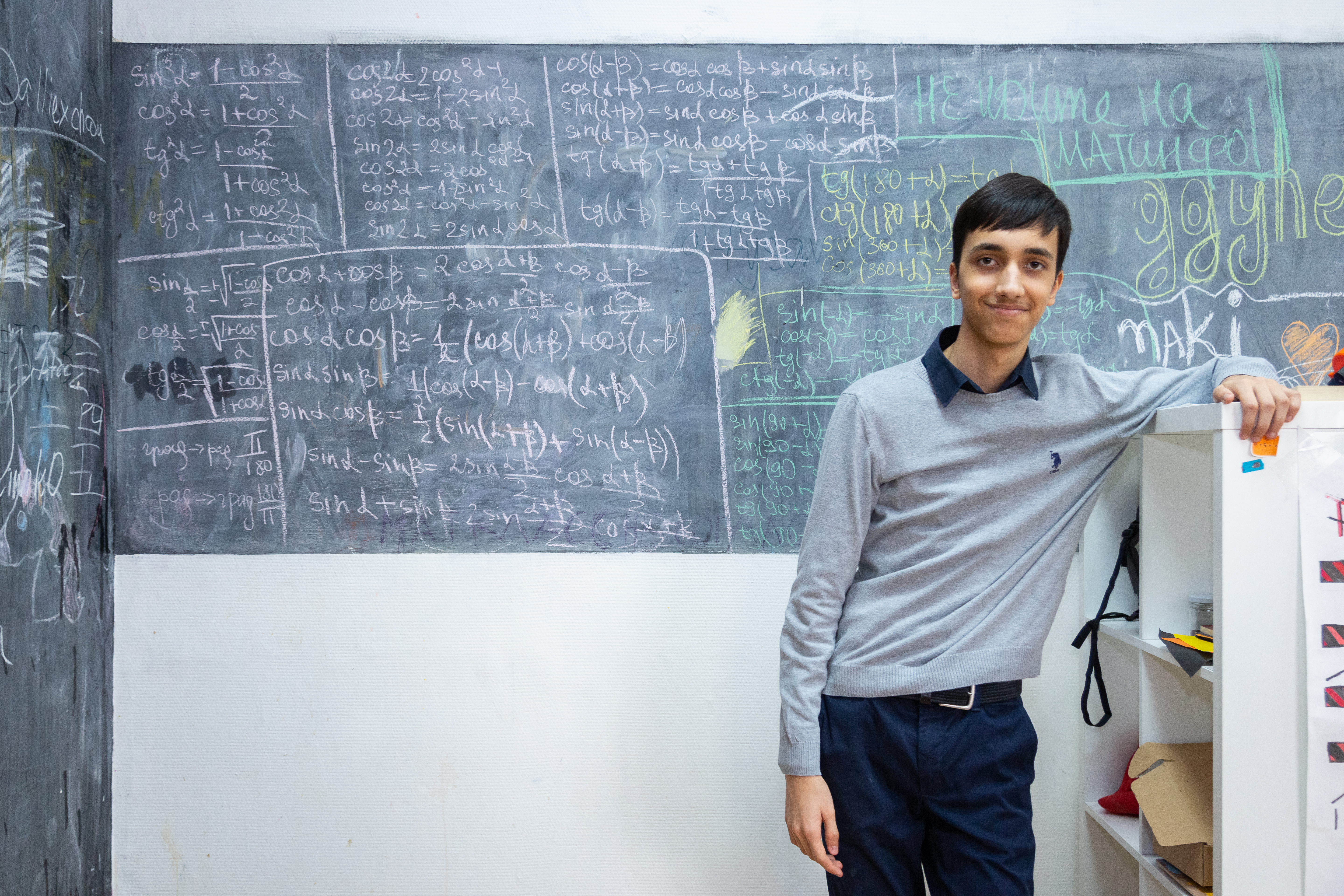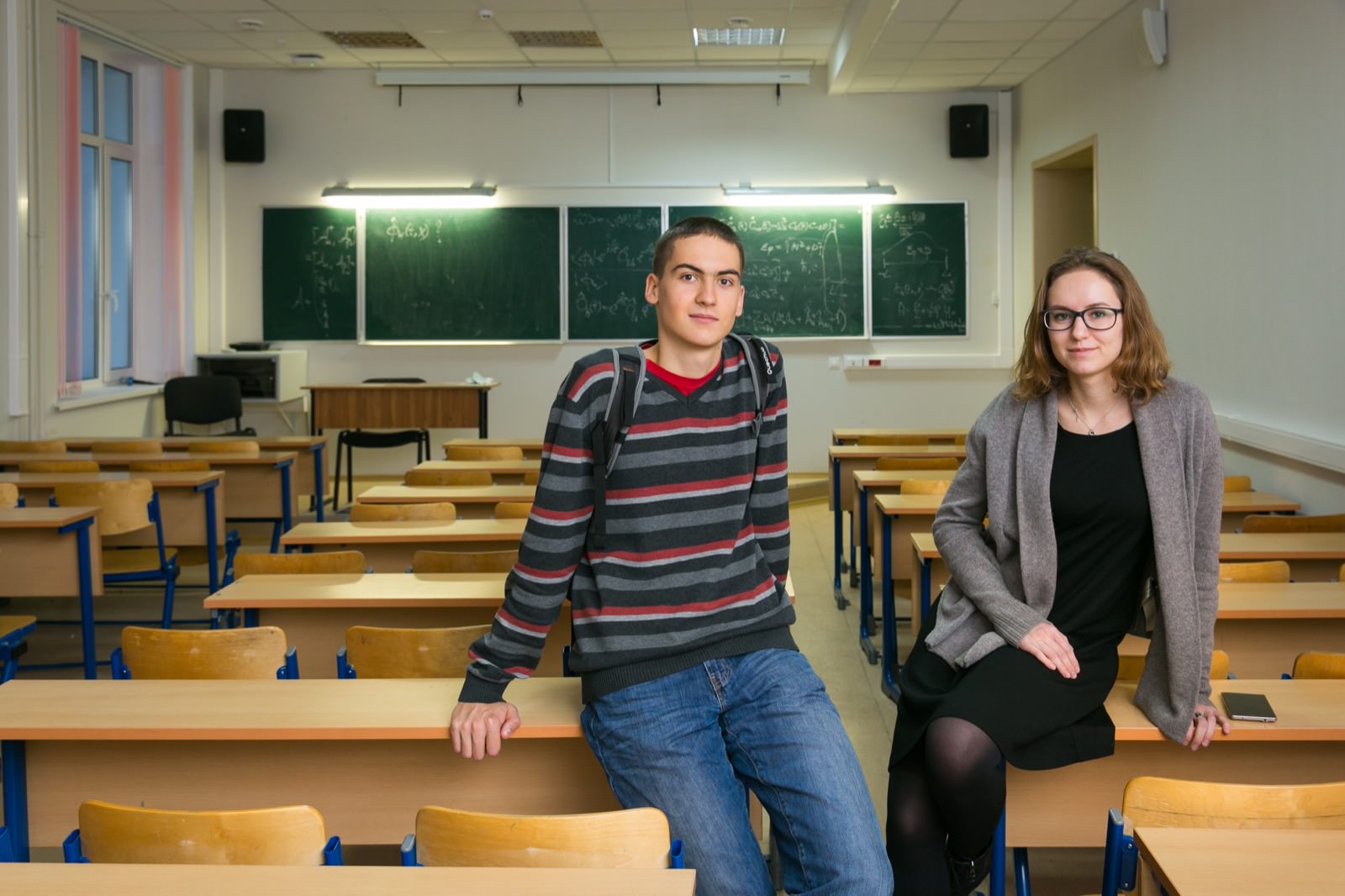Nikita Anisimov: Mathematical Education Needs a New Direction to Meet the Requirements of the Digital Era

The All-Russian Congress of Mathematics Teachers opened on August 15 at the Sirius Educational Centre. Top leaders from HSE University, Moscow State University, the Moscow Institute of Physics and Technology and other universities; scholars and teachers; as well as representatives from government agencies took part in the venue. HSE Rector Nikita Anisimov noted the branches of mathematics that he believes need to be given greater priority in the high school curriculum. Mr. Anisimov also spoke about the initiatives HSE University is taking to transform mathematics education.
The congress was opened by Elena Shmelyova, Head of the Talent and Success Foundation; Andrei Fursenko, Russian Federation Presidential Aide; Anastasia Zyryanova, Deputy Russian Federation Minister of Education; Mikhail Sluch, President of the Association of Mathematics Teachers and Director of the Second School Lyceum; and Victor Sadovnichy, Rector of Moscow State University. Sergei Kravtsov, Russian Federation Minister of Education, gave a keynote presentation and answered questions posed by congress attendees.

Nikita Anisimov, HSE University Rector
HSE Rector Nikita Anisimov took part in the plenary session and in a roundtable entitled ‘School Mathematics and Mathematical Science as the Basis for the Development of the Digital Economy and a Successful Human Life in Today’s World’. He began by congratulating the teachers of mathematics in Latin, drawing loud applause from the audience. He emphasized that, regardless of time and language, mathematics is alive and continuously developing.
Languages may change, and so do times and governments, but mathematics remains the same. However, its narratives may change because it is alive and developing.
Anisimov called the congress an important event because its participants shape the goals of all secondary and higher education in general.
He cited the resolutions of two Russian congresses of mathematics teachers held in 1911 and 2010, saying that they were largely similar in setting the objectives to improve the assimilation of the discipline and to develop logical thinking. ‘100 years later, we are still talking about the same thing—that mathematics needs to be more vital,’ the HSE Rector said. Nikita Anisimov also spoke about his family traditions—his grandmother was a teacher of mathematics in a secondary school just outside Moscow. During the round table earlier that day, he mentioned that his children were pupils at a mathematics school. Reforming how this discipline taught is difficult for both teachers and students. ‘We need to ensure that the reform of mathematics education meets the emerging needs of the time,’ he said.
Anisimov is certain that mathematics is playing an increasingly important role in life and education. Mathematics is essential for evidence-based medicine and evolutionary biology. Psychologists use it to study cognitive processes, while linguists and historians use it to create language maps. Last but not least, a person cannot critically assess data and make correct decisions without knowledge of mathematical tools.
‘Mathematics has grown closer to other disciplines in terms of context. There are more and more professions in which people not only need to know the key mathematical principles, but also how to count using their hands,’ the HSE Rector asserted.
This is how he proposes the key question under discussion: is the content of mathematical education capable of timely transformation in line with the requirements of time? Mathematics is not only necessary as an important operational tool for many professions, but ‘first and foremost, as a language that needs to be understood for basic everyday decision-making and correct perception of the information agenda.’ Mathematics can teach you how to work with models and data. Nikita Anisimov said that more than 450 million documents could be analysed by iFORA, a unique large data analysis system developed by the HSE Institute for Statistical Studies and Economics of Knowledge.

Mathematics continues to penetrate the key disciplines and research areas. Psychologists simulate cognitive processes, and linguists and historians use mathematical methods to create language maps and analyse language convergence to develop online translation tools and even to identify authors of texts. Studying financial markets is impossible without building probabilistic models of different degrees of complexity. Mathematical methods are currently used in sports analytics and have even become a key tool for planning various tournaments and competitions.
‘It is important to note that over the past 20-30 years there have been changes not only in the level of mathematics engagement in all spheres of our lives, but also in the mathematical methods and skills that are in greatest demand,’ the HSE Rector said. The iFORA analysis shows that working with databases, big data analysis, and machine learning are now the key priorities for STEM professions (Science, Technology, Engineering, and Mathematics). This is also true with respect to the majority of research and business areas. Today, it is impossible to achieve success in any field without understanding big data analysis methods.
Anisimov believes that superficial teaching of mathematics for students specializing in the humanities is wrong, as it may prevent them from achieving academic success in the future.
Mathematics is the foundation of the future society, and we should not deprive our children of mathematics.
The most important question is what we should focus on in teaching mathematics, taking into account the new era and digital economy. He noted the branches of mathematics which, in his opinion, should be given greater priority in the school curriculum. They include probability theory (the objective is to bring it closer to real life and to demonstrate to school-age students the associations with problems from various fields), linear algebra (working with matrices and vector quantities), and statistics. ‘It is critically important to move these branches and elements from the periphery to the centre of school mathematics; otherwise, we will be lagging behind other competing countries,’ the HSE Rector said.
Nikita Anisimov recalled that many countries have already undergone the process of transforming mathematics education in response to the challenges of the digital economy, and Russia should do the same as soon as possible. He also stated another relevant objective— mathematics should be taught to everyone rather than just to the smartest students. Basic knowledge in mathematics and the skills to apply it are important for every school graduate.
The HSE Rector also spoke about the development of mathematical science at HSE University, noting that HSE is one of the top mathematical universities. He noted that mathematics is a priority area at HSE University and is taught at all HSE campuses. The most talented children choose to study mathematics at HSE University, and HSE graduates are regarded as outstanding professionals. He gave the example of Anastasia Matveyeva, a Forbes 30 under 30 nominee among Russia’s most high-potential young people in the Science and Technology category. Anastasia graduated from the HSE Faculty of Mathematics, and she is currently a postgraduate student at Catalonian Polytech University.

HSE University traditionally invests a lot of effort in school education: the University runs bachelor’s and master’s programmes jointly with the Pedagogical Excellence Centre, offering a broad range of advanced programmes for mathematics teachers. Nikita Anisimov highlighted the activities of the postgraduate programme in pedagogical skills, with one of its top priorities being the conceptualization of best practices used by the best teachers of mathematics. The HSE Mathematics Olympiad ‘Top Quality’ (Russian ‘Vysshaya Proba’) is a first-tier competition held by the Russian Council for Academic Olympiads for secondary school students; nearly 15,000 people participated in 2021-2020.
‘HSE University believes that mathematics plays an extremely important role in the modern world, and we understand the need to transform mathematics educational content. That is why we decided to bring three initiatives to your attention,’ the HSE Rector said.
First, HSE University has announced a competition for grants to mathematics teachers for the best methodology for teaching probability theory, statistics, and linear algebra at school. Second, HSE University decided to establish a Mathematics Education Laboratory based on a partnership of several key university subdivisions. The Laboratory will be gathering and analysing examples of experience and best practices of teachers of mathematics. Furthermore, keeping in mind that mathematics needs to be promoted broadly, HSE specialists alongside the university’s partners will develop an online course (within an additional educational curriculum) for all secondary school students starting from grade 7. The course will be called ‘Mathematics for Non-Mathematicians’. Nikita Anisimov encouraged all the congress participants to support these initiatives and to get involved in implementing them.
‘The motto of HSE University is “Not for school, but for life we study”,’ he reminded.
Also participating in the congress was Alexandra Skripchenko, Dean of the HSE Faculty of Mathematics; Andrey Okounkov, Academic Supervisor of the Skoltech International Laboratory of Representation Theory and Mathematical Physics; and other representatives of HSE University.

